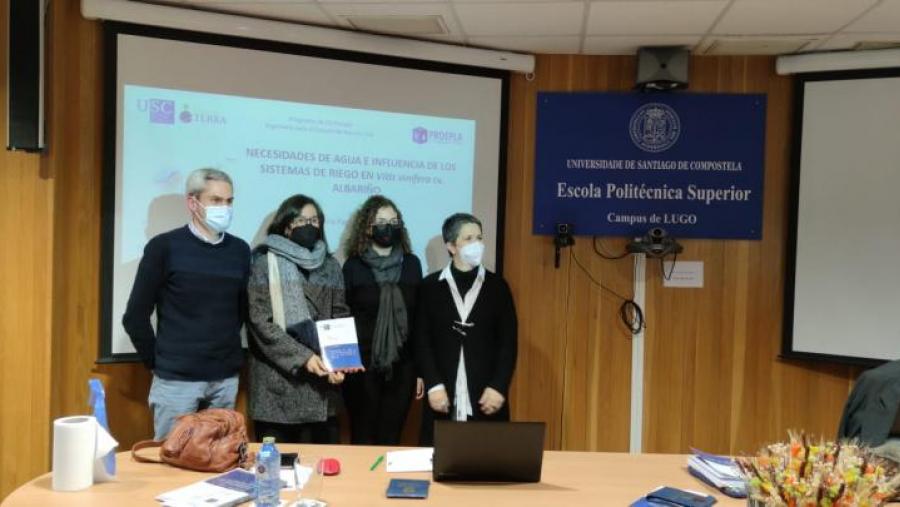The water cycle on Campus Terra, from roots to grapes

Although living things can take on different forms and external appearances, we are all quite similar on the inside. Our chemical composition is similar and mainly consists of an element that is essential for our body to function, but also for the environment and biodiversity: water.
This natural resource is the main focus of the doctoral thesis “The need for water and the influence of irrigation systems on Albariño grapevines”, written by María Fandiño Beiro, researcher from the Projects and Planning group (PROePLA). This dissertation, supervised by Javier J. Cancela, was recently presented at the School of Engineering on the USC's Campus Terra.
The roots of this dissertation stem from the need to analyse the needs of grapevines of Galicia, which makes this a groundbreaking research project in this field in Galicia. In this sense, in her thesis, María Fandiño provides a series of tools, including irrigation, which can help improve the adaptation process of viticulture to climate change.
In order to obtain the best results from the fermentation process, she conducted an in-depth analysis of the different grapevine irrigation strategies along the bud formation, flowering and ripening stages. The dissertation concludes that starting to supply water in this last phase improves growth-yield relationship and increases the likelihood of obtaining quality grapes.
Her studies allowed her to establish that grapevines use between 30 and 40% of the water received in the form of rainfall or through irrigation systems. In the meantime, the rest of the vegetation absorbs another third of the hydric resources available, while the remaining 40% is "lost" by soil evaporation, a process that is beneficial, as it hydrates the soil.
María Fandiño also covered in her dissertation the cultural factors that allow to manage irrigation in a way that is convenient for vine growers. Apart from leaving an excellent aftertaste to everyone on Campus Terra, this thesis also makes it possible to apply its conclusions to the Galician wine sector to increase crop productivity.
